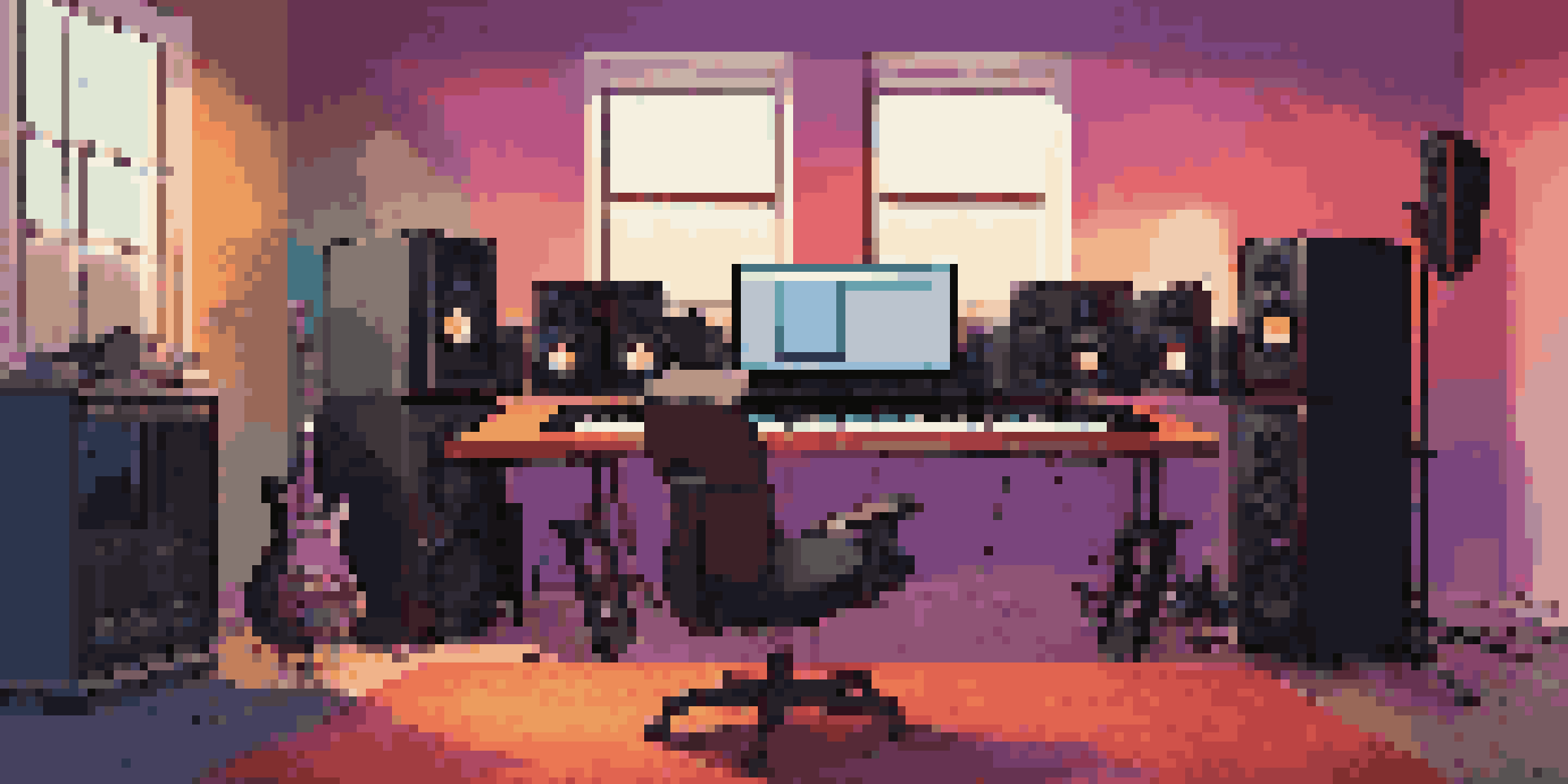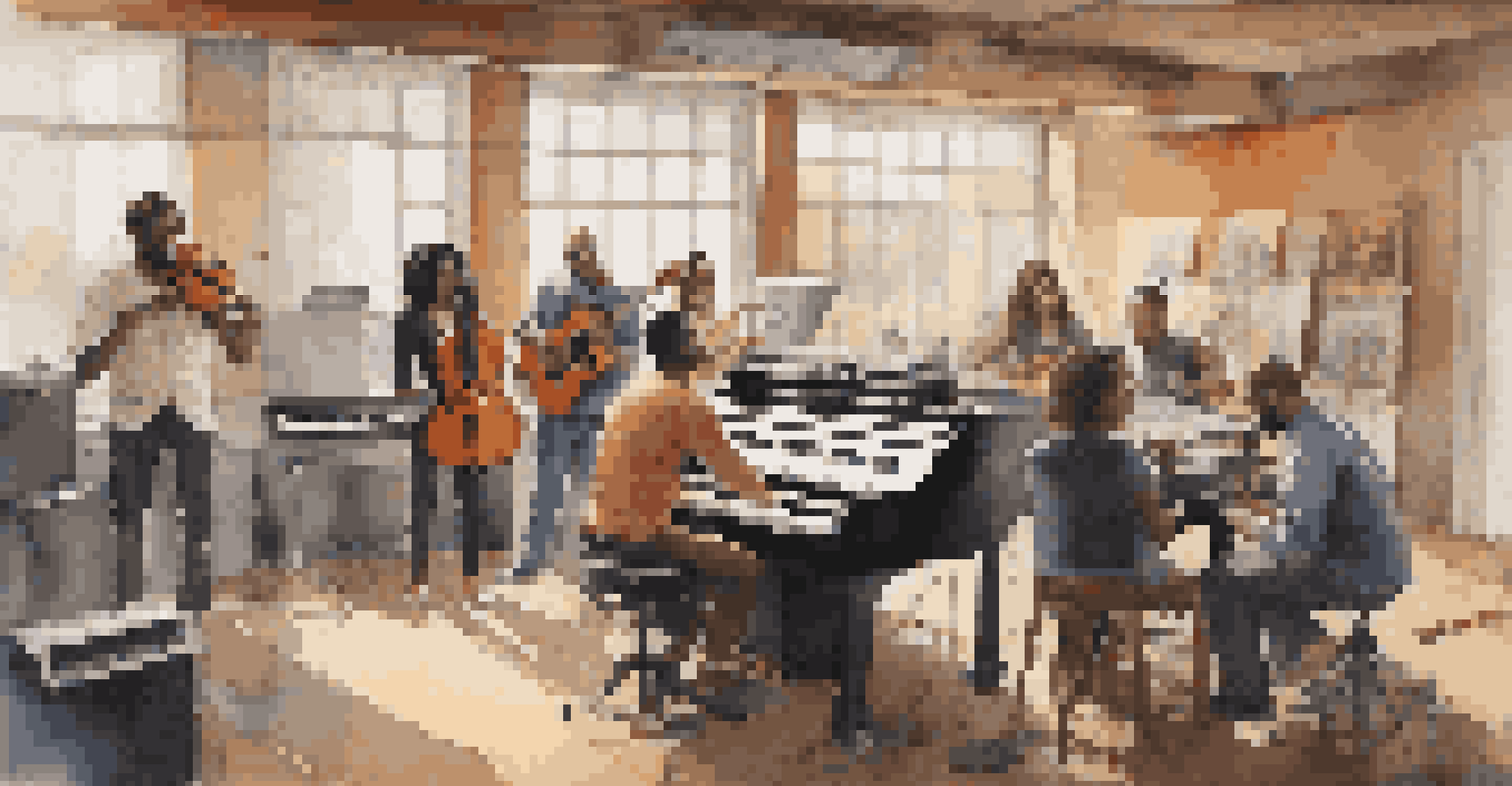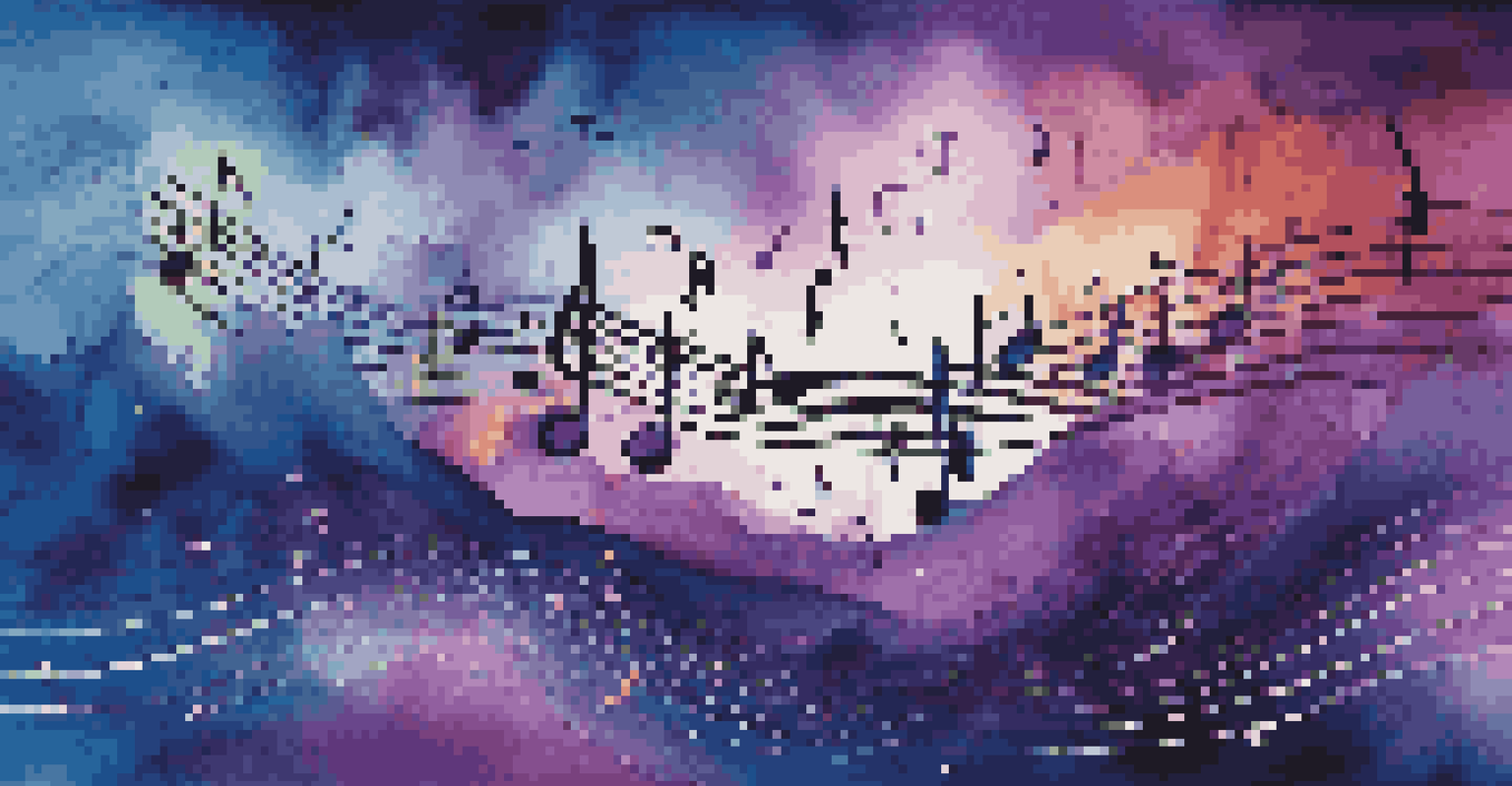Ethics of Music Creation Tools: Democratizing or Diluting Art?

Understanding Music Creation Tools and Their Rise
In the past decade, music creation tools have skyrocketed in popularity, allowing anyone with a computer to compose, mix, and produce music. Tools like digital audio workstations (DAWs) and mobile apps have made music production accessible to a broader audience than ever before. This democratization can empower aspiring musicians who may not have the resources or training to create music using traditional methods.
Music can change the world because it can change people.
However, as more people enter the music-making arena, questions arise about the quality and authenticity of the art being produced. With so many creators using similar templates and samples, is the result truly original, or is it merely a remix of existing sounds? This situation leads to a vital discussion about whether these tools enhance creativity or dilute the essence of music itself.
Ultimately, as we navigate the landscape of modern music creation, it's essential to strike a balance between accessibility and maintaining artistic integrity. The rise of technology in music production is not inherently negative, but it invites us to reevaluate what we consider authentic music in today's world.
The Positive Impact of Democratization on Music
Democratization in music creation opens doors for diverse voices that have historically been marginalized in the industry. With affordable software and online platforms, individuals from various backgrounds can now share their stories through music, enriching the overall musical landscape. This shift not only fosters inclusivity but also encourages innovation, as unique cultural perspectives lead to fresh sounds and genres.

Moreover, the internet allows for global collaboration, where artists can connect and create regardless of geographical boundaries. Imagine a producer in Berlin working with a singer in Johannesburg, blending their unique styles into something entirely new. This exchange of ideas exemplifies the beauty of modern music creation tools and how they can unite people from different walks of life.
Democratization Expands Music Voices
The rise of affordable music creation tools empowers diverse individuals to share their unique stories, enriching the global musical landscape.
In this way, music becomes a universal language, transcending barriers and building bridges between communities. As we celebrate the democratization of music, we must also recognize its potential to inspire and uplift marginalized voices, creating a richer tapestry of sounds for future generations.
Concerns Over Quality and Authenticity in Music
While the accessibility of music creation tools has its benefits, it can also lead to a saturation of content that raises questions about quality. With countless artists producing music using similar software and samples, listeners may find it challenging to differentiate between truly original pieces and generic reproductions. This dilution of artistry can result in a homogenized sound across genres, making it harder for unique talents to stand out.
The beautiful thing about music is that it transcends language.
Furthermore, the ease of creating music may lead some to prioritize quantity over quality, flooding platforms with content that lacks depth and emotion. This trend can diminish the value of music as an art form, reducing it to mere entertainment. When music becomes too easy to produce, the emotional connection that often accompanies the creative process may be lost.
As we navigate this complex terrain, it's crucial for artists and listeners alike to advocate for authenticity and meaningful expression. By supporting musicians who prioritize artistry and originality, we can help cultivate a more vibrant music scene that values quality alongside accessibility.
The Role of Technology in Shaping Musical Trends
Technology has always played a significant role in shaping musical trends, from the invention of the phonograph to the rise of streaming services. Today, music creation tools are the latest chapter in this ongoing evolution, influencing how songs are composed, produced, and consumed. As new tools emerge, they can redefine genres and push creative boundaries, leading to exciting innovations in sound.
However, with each new technology comes the risk of over-reliance, where artists may lean too heavily on tools rather than their own creativity. This reliance can lead to a formulaic approach to music-making, where hits are generated based on algorithms rather than genuine artistic expression. Consequently, technology should be viewed as a means to enhance, rather than replace, the creative process.
Quality Concerns Amidst Accessibility
While more artists can create music easily, this saturation can lead to a dilution of originality and emotional depth in the art form.
By embracing technology responsibly, musicians can leverage these tools to facilitate their artistic vision while remaining true to their unique sound. The challenge lies in finding the right balance between utilizing technology and nurturing one's creativity to ensure that music continues to evolve meaningfully.
Copyright Challenges in the Era of Music Creation Tools
As music creation tools become more accessible, the issue of copyright becomes increasingly complex. With many artists using pre-made samples and loops, the line between inspiration and infringement can blur. This situation raises important questions about ownership and originality in a world where music is often created collaboratively or built upon existing works.
For instance, when a producer incorporates a popular sample into their track, they may unwittingly cross into copyright infringement territory. This can lead to legal disputes that not only affect the artists involved but also create a chilling effect on creativity. Artists may hesitate to experiment for fear of violating copyright laws, stifling innovation in the process.
Navigating these challenges requires a nuanced understanding of copyright law and a willingness to adapt. As the music industry continues to evolve, it’s vital for creators to educate themselves on their rights and remain respectful of the works that inspire them, ensuring that the spirit of collaboration can thrive without compromising artistic integrity.
Ethical Considerations in Using AI for Music Creation
The rise of artificial intelligence (AI) in music creation introduces a new layer of ethical considerations. While AI can generate impressive compositions, the question arises: can a machine truly create art? As algorithms analyze existing songs to produce new melodies, we must consider the implications of allowing technology to replace human creativity in the music-making process.
Moreover, the use of AI tools can lead to concerns about authenticity and emotional depth. While an AI-generated track might sound polished, it often lacks the personal experience and emotion that human artists bring to their work. This raises the question of whether music created by AI can resonate with listeners on the same level as that crafted by a person with lived experiences.
Navigating Copyright in Collaboration
As music production becomes more collaborative, understanding copyright laws is essential for artists to protect their work while inspiring creativity.
As we explore the potential of AI in music, it’s crucial to maintain a dialogue about its role in the creative process. By viewing AI as a tool that complements human artistry rather than a replacement, we can harness its capabilities while preserving the emotional and cultural significance that music embodies.
The Future of Music Creation: A Balancing Act
Looking ahead, the future of music creation will likely involve a balancing act between innovation and authenticity. As technology continues to develop, artists will have more tools at their disposal, offering opportunities to push creative boundaries. However, with these advancements, the responsibility falls on musicians to remain focused on their artistic vision and not get lost in the noise of digital convenience.
In this evolving landscape, it’s vital for creators to cultivate their unique voices and prioritize the emotional connection that music can foster. By striking a balance between utilizing new tools and staying true to their artistry, musicians can navigate the complexities of modern music creation while still resonating with their audience.

Ultimately, the conversation surrounding the ethics of music creation tools will continue to be relevant as technology advances. By remaining mindful of the implications of these tools, we can work together to ensure that music remains a powerful and authentic form of expression for all.